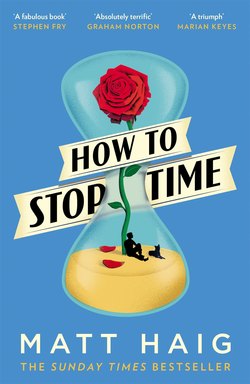Читать книгу How to Stop Time - Matt Haig - Страница 18
На сайте Литреса книга снята с продажи.
London, now
Оглавление‘Witches,’ I say, in the voice of a teacher. That is, a voice that isn’t really heard.
So, this is the life I have chosen above all others. The life of a man standing in a room of twelve-year-olds ignoring him.
‘Why do you think people four hundred years ago wanted to believe in witches?’
I survey the room. The faces are smirking or embarrassed or checking their phones or all three. It is 9.35 a.m. We are only five minutes into the lesson. It is going badly. The lesson, the day, the job. It is all going badly.
Maybe being a teacher wasn’t a new beginning for me. Maybe it was just the newest in a line of disappointments.
I had – right up until Sri Lanka – spent eight years in the north of Iceland, ten miles north of the fishing village of Kópasker. I had wanted Iceland because before that I had spent a few years in Toronto. Toronto is the greatest and happiest city on earth, but despite that – maybe because of that – it made me unhappy, as I just lived in an apartment there, never seeing anyone. Once I went to watch the Blue Jays play baseball, but being surrounded by so many people who I knew I could never connect with was the thing that had made me want to go to Iceland. And all that living alone in Iceland had done was make me want an ordinary life.
But an ordinary life is not a guarantee of happiness. And, of course, this – being a teacher – was just a pretence. Maybe everyone was pretending something. Maybe every teacher and pupil at this school was pretending something. Maybe Shakespeare was right. Maybe all the world was a stage. Maybe without the act everything would fall apart. The key to happiness wasn’t being yourself, because what did that even mean? Everyone had many selves. No. The key to happiness is finding the lie that suits you best.
And, right then, staring at those smirking twelve-year-olds, I think: this is the wrong lie.
‘Why did people believe in witches?’ I repeat. Daphne walks along the corridor outside. She gives me a smile and two thumbs up as she passes by at a busy pace. I smile back, acting as if this is great fun and I am doing it well, like a natural, like someone who had done this before, many times, and not like the oldest of dogs learning a new trick.
I repeat my question.
‘What made people want to believe in witchcraft?’
At first it looks like a girl on the front row is putting up her hand to answer, but it is just a yawn.
So I answer my own question. I try my best not to remember what this topic makes me remember. I try to cement over the cracks in my voice.
‘People believed in witches because it made things easier. People don’t just need an enemy, they need an explanation. And it’s often useful, in unsettled times, where ignorance is everywhere, for people to believe in witches . . . Who do you think believed in witches?’
‘Stupid people,’ someone says. It is a mumble, hard to locate.
I smile. There are fifty-five minutes left of the lesson.
‘You’d think so. But no. It was all kinds of people. Queen Elizabeth the First passed a law against them. Then the one after her – King James – he considered himself an intellectual and he even wrote a book about them. The first technology to lead to fake news wasn’t the internet, it was the printing press. Books solidified the superstition. Almost everybody believed in witches. And there were witchfinders who travelled around the country, finding . . .’ There is a sudden sharp pain, an intensifying of the headache, radiating from my inner brain, causing me to hesitate, dangerously, mid-sentence.
The yawning girl on the front row now looks concerned. ‘Are you all right, sir?’
‘Yes, I’ve just got a bit of a headache. I’ll be fine.’
Then someone else. Another girl, near the back: ‘So how did they find out if someone was a witch or not? What did they do?’
And the question flaps around my head like a crow in a dark room.
What did they do?
What did they do?
What did they do?
